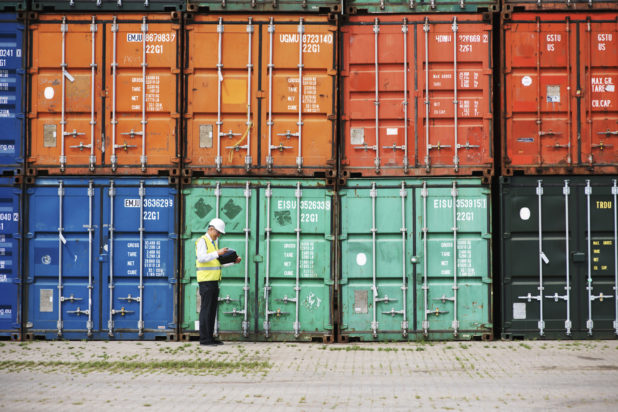
By guest author Gemma Alexander
The Trans-Pacific Partnership (TPP) is one of the largest trade agreements in history. The 12 countries involved in the agreement—the U.S., Japan, Malaysia, Vietnam, Singapore, Brunei, Australia, New Zealand, Canada, Mexico, Chile, and Peru—account for 40 percent of the world economy.
The TPP is also notable as the first trade agreement to directly address the barriers small companies face in expanding into foreign markets. This sounds like a great step forward, but the TPP has garnered heavy opposition. So, is it good for small businesses, or not?
What does the TPP say about small businesses?
Even before the final agreement was published for review on Nov. 5, 2015, a Fortune editorial celebrated the TPP for including a chapter aimed at eliminating or minimizing trade barriers that disproportionately challenge small and medium-sized companies (called SMEs in the agreement).
But on first review, Chapter 24 of the TPP, Small and Medium-Sized Enterprises, doesn’t appear very substantive—it’s only three pages long and contains just three articles. But that doesn’t mean the TPP isn’t important for small business owners. Virtually all aspects of the economy are impacted by the agreement, and many chapters of the agreement include provisions that specifically affect small American businesses expanding into international markets.
The official summary from the Office of the United States Trade Representative identifies some of these provisions:
- Elimination of all tariffs on American manufactured goods and nearly all U.S. farm products
- Expedited customs procedures for express-mail shipments
- Supports for e-commerce, including digital customs forms and consumer protection laws for online commercial activity
- Protections for intellectual property rights
- Commitments to work towards regulatory coherence, government transparency, and elimination of corruption
Why is there so much opposition?
With benefits like these, the TPP seems like a clear win for everybody, but it faces such fierce opposition that supporters are far from confident Congress will pass the agreement. Some of the opposition can undoubtedly be attributed to partisan politics, but tellingly, both Bernie Sanders and Hillary Clinton oppose the TPP, despite President Obama’s support.
The opposition comes from several different aspects of the TPP:
- Process concerns. An estimated 792 million people live in the nations that are party to the agreement, but the opportunity for public input was extremely limited during the negotiations. Negotiations took place behind closed doors. In fact, news reports online do not even agree about how many years the negotiations took.
- Rights issues with the Investor-State Dispute Settlement (ISDS). Remember that chapter that doesn’t apply to small businesses? Many fear ISDS will elevate corporations from personhood to near governmental status. TechCrunch worries that under TPP consumer privacy and personal data will be compromised. But the Office of the U.S. Trade Representative claims that ISDS protects basic rights, such as protection against discrimination and expropriation without compensation, and mimic laws already in place in the U.S.
- No mechanism for change and no sunset date. Vox points out that the rules relating to source code disclosure and other technology are complex and may change over time. Rules that seem sensible today may be hopelessly inappropriate in 10 years’ time, yet the TPP doesn’t include a mechanism for addressing this inevitable situation.
- Copyright laws. Internet freedom groups claim that the TPP’s extensions of copyright will benefit large corporations more than small innovators, chilling free expression and even restricting access to medicine by keeping the cost of pharmaceuticals high by delaying the release of generic drugs.
- This is a race to the bottom that benefits major corporations. Large-scale trade agreements have historically benefitted major corporations while hurting workers and the environment. In a speech last May on small businesses, President Obama said “Past trade agreements, it’s true, didn’t always reflect our values or didn’t always do enough to protect American workers. But that’s why we’re designing a different kind of trade deal.” A cursory review of the provisions of TPP shows enforceable protections for workers and the environment, requiring countries with the worst track records to complete specific actions before the U.S. will bring the TPP into force with those nations. But the Office of the U.S. Trade Representative is noticeably silent on whether those provisions stand to benefit workers and the environment here in the U.S. as well as their counterparts abroad.
Who will benefit in the end?
Both opponents and supporters can agree that the Trans-Pacific Partnership would make a huge impact on trade, and by extension, the average American. But both sides are making broad claims about the impact in both directions, when in reality the TPP is a conglomeration of very specific provisions, with numerous exceptions and special cases. The inclusion of provisions addressing environmental standards, labor protections, and support for small businesses is without doubt an improvement over past trade agreements. But a careful reading is required to determine who benefits the most.
The full text of the TPP is available online. It’s not an easy read, but anyone with dreams of doing business internationally should review the contents.
About the Author: Gemma Alexander is a Seattle-based freelance writer specializing in technical topics for general readers. She also writes about legal issues in everyday life on the Avvo Stories blog. Avvo helps people find and connect with the right lawyer through industry leading content, tools and services. A free Q&A forum with more than 9 million questions and answers, along with on-demand legal services that provide professional counsel for a fixed cost, make legal faster and easier. For more information, visit www.avvo.com.



